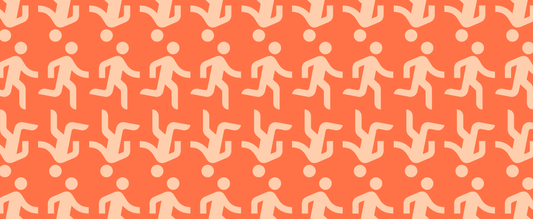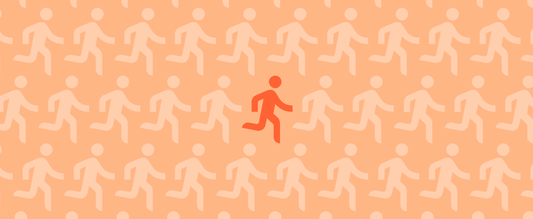Football and Focus - the Challenges of ADHD as a Professional Footballer
Read Time 4.5 mins
Introduction
The world of professional football is hugely competitive. Boys and girls grow up watching their favourite players achieve fame and adulation and hope to one day achieve the same success. Whilst talent is obviously important, hard work, focus and discipline are what make the difference between a good player and a great one.
When you have ADHD, achieving your dreams of football stardom may be even more of a challenge. Staying disciplined on and off the field can be hard. It can also be tough to control impulsive behaviours and build relationships with teammates.
Two footballers who understand these challenges all too well are Willem Tomlinson and Kaitlyn Morgan-Hemmens. Their stories serve to highlight the challenges of being a professional footballer with ADHD and how they have both fought to succeed in their dream careers.
Willem's story
Willem Tomlinson was born in Burnley, Lancashire in 1998. As a child he displayed what we think of as the 'typical' traits of ADHD in young boys, talking a lot and struggling to sit still. Although his family suspected he might have ADHD, Willem did not receive a diagnosis.
Willem's main passion was football, and in 2009 he was ecstatic to join Blackburn Rovers youth team. At age 17, he made his professional debut playing against Manchester United. Initially, Willem thrived in this environment, channelling all his energy into training and becoming the best player he could be.
Even though he was living his dream, Willem's undiagnosed ADHD was about to cause problems. Although he was incredibly driven and focused on the pitch, once the workday was over, boredom struck. In the evenings, he would regularly visit casinos and bars, staying out late and feeling the effects the next day.
Willem's career at Blackburn became beset with issues. In 2019, after suffering an injury he was unable to play regularly. This allowed space for other teammates to outshine him, and he became frustrated that he was no longer a top priority. After yet another night of drinking, he called in sick to work and his manager made the decision after ten years with the club to terminate his contract.
Another significant event in 2019 was that Willem finally received an ADHD diagnosis. While many things from his past suddenly became clear, his problems were not over. He did not yet have any coping strategies for his new diagnosis, and he had to wait to be prescribed medication.
Willem signed for Mansfield Town, and although things initially went well, he soon started demonstrating self-destructive behaviour. Things went from bad to worse once COVID-19 hit. Suddenly Willem found himself stripped of his daily routine, in lockdown miles away from friends and family, with no one to help him.
His mental health was suffering badly, and he started drinking every day, unknowingly seeking the dopamine boost he was lacking. In September 2020, unable to find a way to control his impulsive behaviour, Willem was once again let go from the team.
Luckily, Willem's fortunes were about to turn around as he signed for Radcliffe FC. Here, he had open and honest conversations with management about his ADHD and how it had affected him in the past. Having seen how bad things became when he had no routine, Willem now understood the importance of structure and order to his day.
Willem also learnt more about the connection between his brain and his body. Whereas he had previously indulged in unhealthy takeaways, he started making more healthy food choices and going to the gym every day. This significantly boosted his dopamine levels and elevated his mood.
The hard work of Willem and his teammates paid off, when Radcliffe FC won the 2023–24 Northern Premier League Premier Division. As a result, they were promoted to the National League North for the first time in the club's 75-year history.
Kaitlyn's story
Kaitlyn Morgan-Hemmens was born in England in 2002. Unlike Willem, she was diagnosed with ADHD at the age of eight.
Kaitlyn describes herself as being an angry child who liked things being done in a specific way. For example, from a very young age, she would insist on washing and ironing her own clothes as she was incredibly particular about them being neat and tidy.
Kaitlyn was medicated for seven years following her diagnosis. She was given Ritalin which made her hyperactive, and also sleeping tablets to counteract the effect of the Ritalin at night.
Just like Willem, football provided Kaitlyn with a positive outlet. As with many individuals with ADHD who discover a true passion, her hyperfocus allowed her to fully commit to and excel in her role as a footballer.
At age 15, Kaitlyn signed to Bristol City and made the decision to come off her medication. She did not like the effects of the Ritalin as she felt it fundamentally altered her personality. Being medicated felt like a form of masking, and she wanted to be her authentic ADHD self.
Another reason Kaitlyn made this choice was that she did not want to disclose her ADHD to the club. Other children on the team were from more privileged backgrounds than she was, and she felt that disclosing her ADHD would be another layer of stigma.
Kaitlyn played for Bristol for five years. She acknowledges that her ADHD has pros and cons as a player. For example, she found it hard to understand the theory of play patterns. However, she excelled in the practical, physical part of the game.
ADHD also had an impact on Kaitlyn's role as a teammate. She found it difficult sometimes to connect with others, especially if she witnessed unfair treatment. Her heightened sense of justice sensitivity, a common trait in those with ADHD, sometimes made it hard to fit in. Despite this, she was popular with teammates because of her positive, happy attitude and commitment to the game.
Over the course of her footballing career, Kaitlyn also played for Cardiff City and Plymouth Argyle, as well as training to become a firefighter. She and Willem have both spoken publicly about their experiences as footballers with ADHD. In a world where players often prefer not to disclose their neurodivergence, Kaitlyn and Willem are helping to break down barriers.
By raising awareness of ADHD, they are helping to create a more inclusive space for sportspeople, and inspiring future generations of neurodiverse football players.

Mix up your movement! How varying exercise boosts focus, mood,...
Read Time 4.5 mins

Neurodiversity in Sport - The Power of Understanding
Read time 5 mins

Reframing Yoga for ADHD: Rosie Turner and ADHD Untangled
Read time 5 mins








